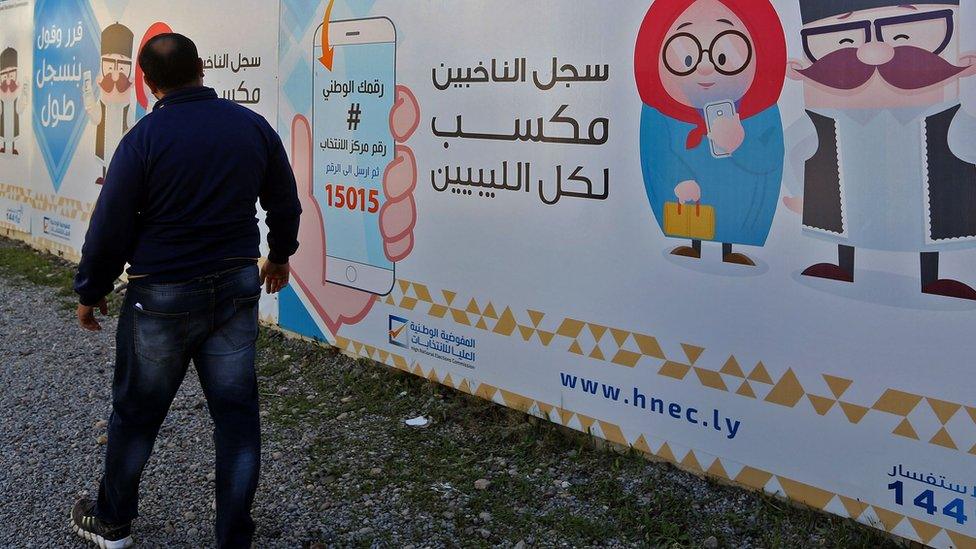Human Rights Watch: Libya 'incapable' of holding elections
- Published

Human Rights Watch worries about "coercion, discrimination, and intimidation" ahead of the 2018 elections
Libya is not ready to hold free and fair elections, campaign group Human Rights Watch (HRW) has warned.
The country's rival authorities are planning to hold parliamentary and presidential elections later this year, but no date has been set.
The United Nations and the European Union support the upcoming vote.
But HRW worries "voters, candidates, and political parties" are at risk of "coercion, discrimination, and intimidation" if the ballot goes ahead.
The US-based rights group thinks the conditions needed for free and fair elections will be hard to meet in the North African state, which was thrown into chaos following the overthrow of Muammar Gaddafi in 2011.
"Libya today couldn't be further away from respect for the rule of law and human rights, let alone from acceptable conditions for free elections," Eric Goldstein, deputy Middle East and North Africa director at Human Rights Watch, said in a statement.
HRW says free speech, rule of law, assembly and a "functioning judiciary that is able to deal fairly and promptly with disputes concerning the elections" must be respected.
But armed groups continue to threaten, intimidate, and attack judicial figures and officials, HRW says.
It also points out that the "legal framework for an election remains opaque", and has urged the elections commission to conduct "transparent audits of its voter register to rule out any inaccuracies".
The country is currently run by a myriad of rival groups, which has made it difficult to secure any kind of electoral process.
They have yet to introduce new election laws, nor have they amended articles in its constitutional declaration, which would define the powers of the elected president.
Presidential hopefuls include Prime Minister Fayez al-Sarraj, who leads the UN-backed government of national accord, and the military commander in East Libya, Khalifa Haftar, who leads the so-called Libyan National Army (LNA).
They both agreed to hold elections within the first half of 2018 during a July 2017 meeting in Paris, which was convened by French President Emmanuel Macron.
- Published27 February 2018
- Published25 August 2017
- Published25 July 2017